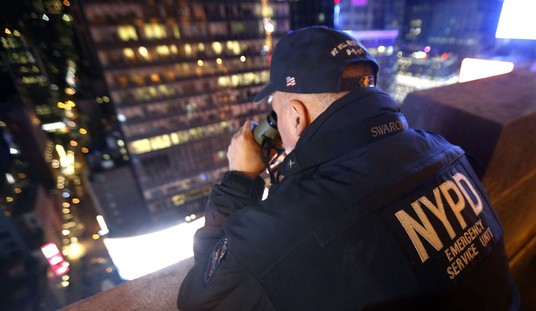Italy has told NATO it will not join in the aerial bombing campaign against Khadaffi’s forces, according to Agence Press France. Prime Minister Silvio Berlusconi told members of parliament that “bearing in mind our geographical position and colonial past, an engagement that goes beyond our current commitment would not make sense.” Berlusconi said Italy’s role was to “provide the maximum support with its air bases”.
This came as Bloomberg News reported the rebels in flight from their positions in Ajdabiya. But analysts said the rebel weakness was only temporary. They would strengthen when they eventually received heavy arms.
“The rebels don’t have the logistics or organization to move forward with major objectives at this time,” said Andrew Terrill, a Middle East specialist at the Strategic Studies Institute of the U.S. Army War College in Carlisle, Pennsylvania. “Unless we see large scale surrender from Qaddafi loyalists, I don’t see too many cities changing hands.”
With NATO air attacks on Qaddafi’s troops and supplies slowly crippling his war machine, “time is much more on the rebels’ side,” said Terrill. “The rebels are getting stronger and Qaddafi is getting weaker; I don’t see the urgency of mounting an offensive.”
“Our situation is very good, thank God,” according to Gen Younis, a former Khadaffy military man now commanding the rebels.
French Defense Minister Gerard Longuet expressed confidence that airpower alone could hold Khadaffy. “Coalition aircraft can destroy Qaddafi’s supply chain as they move east in the open, but in urban combat I have to concede that while air power can avoid a tragedy, it can’t solve the problem.” But all would be well once the aerial armada was supplied with enough targeting assets. “The problem is that we’re missing concrete and verifiable information on identified objectives on the ground.” The fighting around Misrata was particularly vexing. It was surrounded by towns friendly to Khadaffy and the Duck’s forces were fighting well.
Pro-Gaddafi towns surround the city, and the only help Misurata residents receive comes from the sea.
Ali Hannoush, a rebel fighter and guard at the port, said that he has lived in fear for 60 days. He pointed out the gnarled cargo crates of chocolate and chewing gum that were hit by rockets.
“For every Gaddafi soldier we kill, we lose three or four of our fighters,” he said. “We’ve suffered since the beginning.”
But he said he is determined to stay and fight.
President Obama told the Associated Press that Khadaffy was “getting squeezed” and that eventually the Duck of Death would be worn down and decide to leave. Hillary Clinton said the Libya effort was “solid and sustainable” and that “we all need to be a bit patient”. But she said the effort was already bearing fruit, saying the world had prevented a new Srebrenica. “The world did not wait for another Srebrenica in a place called Benghazi,” Clinton said at the American Academy in Berlin. Dennis Ross said that what had been averted was a “Srebrenica on steroids.”
But with that danger safely past, everyone continued to hang back in their own way. The rebels were waiting for arms. The French were waiting for targeting assets, Barack Obama was waiting for “eventually” and the Italians were waiting for everybody else. The assumption was that time was on the side of the Coalition. But one thing that would increasingly weigh on their minds was the effect the war would have on civilians. The humanitarian crisis that everyone should have anticipated from Day One is increasingly taking center stage.
The UK is to hold “urgent talks” at the United Nations about the “dire” humanitarian crisis affecting residents in western Libya. The rebel-held western town of Misrata has been under attack from Colonel Gaddafi’s forces for over five weeks
The other thing that should weigh on the Coalition’s minds is the presence of Murphy. Old wounds heal slowly in the region. Khadaffy seemed to feel himself strong enough to open a second front against his old enemies from 1993 coup. The Washington Times says that his forces are now laying siege to towns in the Western Libyan mountains. This is the base of tribal elements who tried to seize power from him nearly two decades agao.
Col. Moammar Gadhafi’s forces have laid siege to towns in Libya’s Western Mountains, cutting off essential supplies and creating a humanitarian crisis among the mostly ethnic Berber population, rebels and other sources in Libya said.
Some of these sparsely populated towns, which have been cut off for nearly two months, no longer have baby formula or essential medical supplies, Libyan sources said. Their stocks of food and gas also are running dangerously low.
Rebels said they have repelled attacks by pro-Gadhafi forces in Zintan and Nalut, the bigger cities in the Western Mountains. However, the regime’s forces are now within striking distance of Jadu and Ar Rajban, according to residents of those two towns.
How this will finish up is anybody’s guess. But President Obama feels serenely confident that he’s prevented another humanitarian crisis. Let’s hope he’s right.
[youtube UuVwRMKwcGU]










Join the conversation as a VIP Member